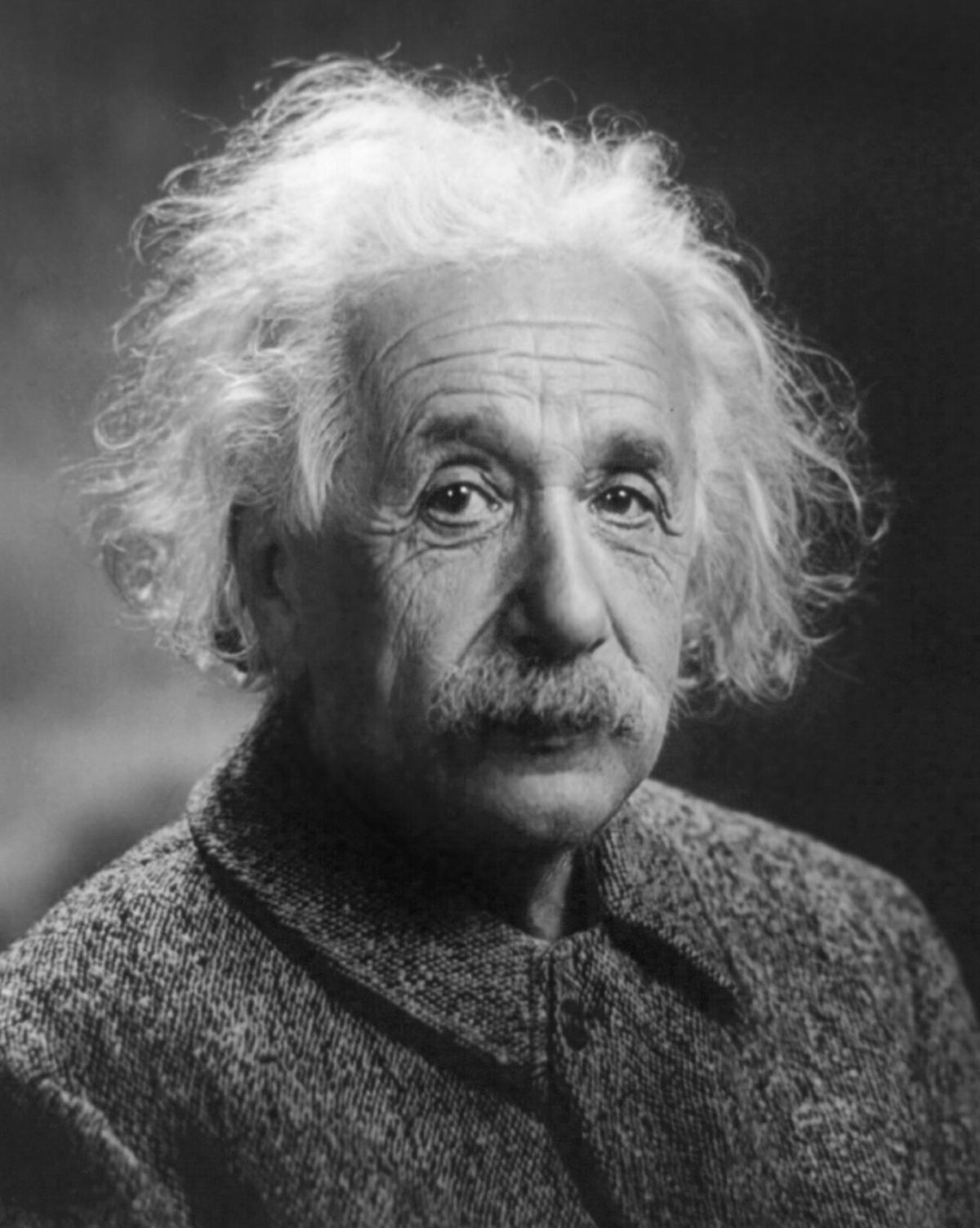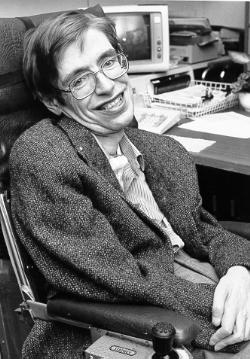We don’t really know what happens inside a black hole, but there are some fascinating theories surrounding this great mystery. Here is an eight-point overview of our understanding of black holes.
1. Point-of-No-Return
The event horizon is understood as a sort of point-of-no-return that surrounds a black hole. Once an object crosses it, we’re not really sure what happens, but it doesn’t ever seem to come back—at least not in a recognizable form.
2. Tearing Objects to Pieces
According to Albert Einstein’s theory of relativity, an object that passes the event horizon would not experience any immediate change. The immense pressure of gravity inside the hole would increase as the object enters deeper into the hole. Eventually, the pull of gravity would tear the object apart into extremely tiny pieces.

Albert Einstein (Oren Jack Turner)
3. Singularities, Singularly Perplexing
Einstein also hypothesized that at the center of black holes are space-time singularities. Singularities are extremely tiny, extremely dense, and extremely mysterious. Scientists don’t know much about them except that they exist, and that a singularity may have been the origin of the known universe.
4. Hawking Says Black Holes Leak
In 1974, famed British physicist Stephen Hawking presented the popular theory that radiation leaks out of black holes. This leakage causes the black holes to slowly shrink and eventually evaporate.

Stephen Hawking (NASA)
5. Quantum Mechanics Contradicts Einstein, Greater Confusion Ensues
According to quantum physics, when entangled particles are separated and some leave the black hole, immense amounts of energy are generated. This energy creates a firewall at the event horizon, incinerating anything that enters. This contradicts Einstein’s well-established theories, according to which, as mentioned above, an object is not incinerated, but rather pulled apart by gravity.
6. Advancing Out of Confusion
This contradiction lies at the heart of the mystery. “It’s not so much that there’s a mistake, but somehow, some assumption that we believe about quantum mechanics and gravity is wrong, and we’re trying to figure out what it is,” Indiana University physicist Nikodem Poplawski told PBS. “It’s confusion, but it’s confusion that we hope makes us ripe for advance.”
Poplawski has suggested that at the center of a black hole could be a wormhole to another universe, and the substance and force that created our universe through the Big Bang may have come through such a wormhole.
7. Hawking Says ‘There Are No Black Holes’
Earlier this year, Hawking suggested the firewall does not exist and that matter and energy are suspended on the other side of the event horizon. The matter and energy do re-emerge from the hole, but the process is unpredictable. It may shift and change and it basically can never be reassembled in its original form.
He wrote in a paper titled “Information Preservation and Weather Forecasting for Black Holes”: “...There are no black holes—in the sense of regimes from which light can’t escape. ... There are however apparent horizons which persist for a period of time.”
He continued later in the paper: “The chaotic collapsed object will radiate deterministically but chaotically. It will be like weather forecasting on Earth. That is unitary, but chaotic, so there is effective information loss. One can’t predict the weather more than a few days in advance.”
Hawking’s new theories have yet to undergo peer review, and other physicists caution that they do not necessarily signal a breakthrough in understanding black holes.
8. Astronomers May Soon See a Black Hole in Action Like Never Before
A gas cloud is approaching the supermassive black hole in the center of our Milky Way and astronomers are eager to see what happens next. A black hole has never been observed in action at such close range. It is very difficult to tell what black holes are doing when observed in distant regions of the cosmos. The pending observation could provide the breakthrough in understanding black holes.
*Artist’s rendering of a black hole via Shutterstock





